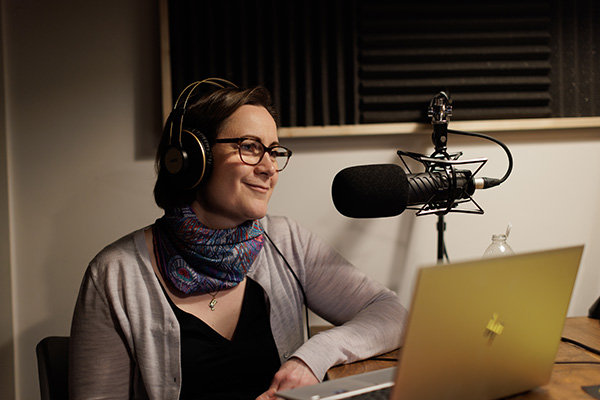Do you remember the moment you knew you were meant to be a speech and language therapist?
Welcome to Me & SLT Stories – our series that delves into the stories of speech and language therapists here at Cygnet.
We interviewed Dominique St Clair Miller – Director of SLT [Healthcare] at Cygnet Group – to ask her this very question. For Dominique, it was a series of moments that launched her career more than 20 years ago. During our discussion, we found a curious theme…
Over to you Chris and Dominique.
Chris: Hi Dominique, congratulations on celebrating 20 years in speech and language therapy!
Dominique: Thank you! I’m not far off 21 years now.
Chris: Amazing! What led you to pursue speech and language therapy? Was there a defining moment or a series of events that sparked your interest?
Dominique: It was a series of moments, as you say. The first time I heard about speech and language therapy was when a friend of mine lost their voice due to a throat infection and was referred to a speech and language therapist at the children’s hospital. I was fascinated that there was nothing physically wrong with their vocal cords, yet their voice wasn’t being produced as a healthy voice should.
And shortly after that, a neighbour of mine had a severe stroke and he could hardly speak. I was curious to know what happened to him. And quite by accident I met him in a group run for stroke patients when I was doing a work experience day at the local hospital.
And I think that was probably the moment where my interest in speech and language therapy really accelerated: I witnessed somebody who’d gone from fully functioning to somebody who was really struggling to string words together to communicate.
Chris: What role did school play in your decision?
Well, I took one of those career questionnaires which were popular back in the day. And it came out with two main things – one was that I definitely shouldn’t be a lawyer! And the other was that I was suited for therapeutic roles. So I found that speech and language therapy drew together my interests in linguistics, biology, and psychology. It was the perfect combination of science and art that I had always enjoyed.
Chris: Why do you think that questionnaire came back with those results?
Dominique: What I’ve learned to recognise in myself is that there’s a natural curiosity that I have about people, and that’s the first thing I think which is really important in any type of therapy – being curious about people.
It’s not just a kind of nosiness about wanting to know about other people’s lives, but a genuine fascination with how people are different from one to the other and how different people will see life in such a different kind of way. What we are motivated by and what we’re drawn to varies greatly, and I think this is what drives my curiosity.
Going back to the stroke group that I sat in on, there were five different people in this room who had very different lives, who had all shared the experience of having had a stroke or a brain injury. They had come out of it with very different experiences, but they all shared commonalities.
I suppose it’s the curiosity and the desire to bring together what you know about an individual and what they love about life, and want to get out of life. It’s a real pleasure and privilege to be able to do this as a job: This sounds a bit cheesy, but it’s something that’s fundamentally at the core of what we do and why we enjoy the work that we do.
Chris: No, it’s not cheesy. It’s absolutely right. That curiosity is fascinating.
Dominique: Yes. And from a very personal perspective, I grew up in a bilingual household. Our upbringings were so radically different. It’s another example of where people can have a shared experience but respond to that experience in quite a different way. You can never really predict how a health condition might impact one person versus another. And you can only be led by what their very personal experience of that is.
Chris: I guess there’s a danger of losing that when health and social care services are stretched – people might be treated all the same.
Dominique: In healthcare services I think you will find a set response to something or a set piece, and we do talk about “packages of care”. So to some degree we do have a notion of what our standard response will be to something.
But in my career I’ve always been attracted to services where there’s been scope to personalise that pathway of care in a way that is meaningful and produces the very best outcome.
So it’s not just “Hi Chris. It’s nice to meet you. What’s the issue for you today? Okay, this is my set-piece response to somebody with X, Y or Z problem.”
It would be around actually going: “This is what I know and understand about the reason you’ve been referred to me. Now I want to understand a lot more about you to make sure that you get out of it what you want.”
I don’t necessarily have a set objective in mind – I want to find out what the individual’s objectives are and weave this into the therapeutic plan.
Chris: Thanks Dominique, it’s been fascinating chatting with you and getting such a great view into why you do what you do. I’m looking forward to delving into some more stories with you for Me & SLT in our next chat.
Listen to Dominique’s conversations with colleagues in the first season of our new podcast: Me & SLT – The Career Podcast for Speech & Language Therapists

